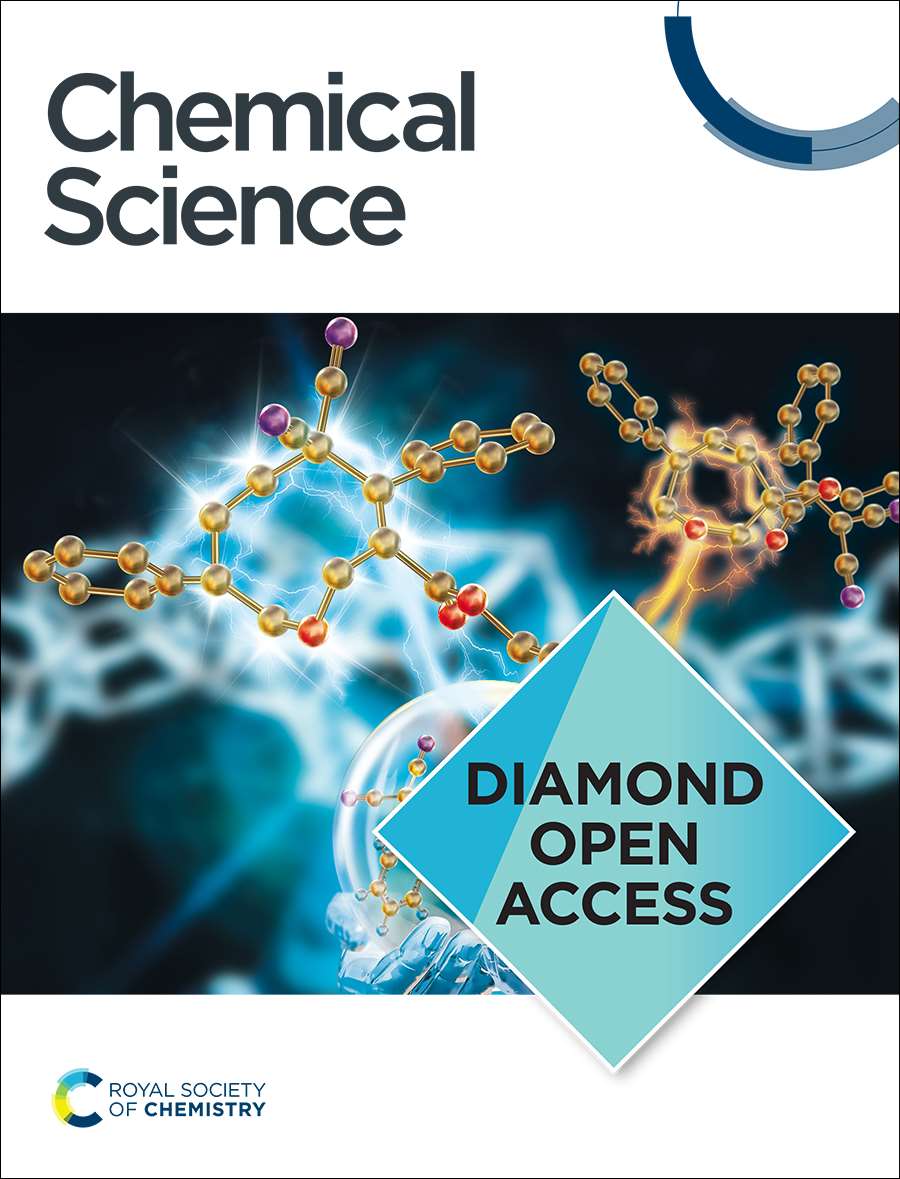铂(II)液晶共组装中圆偏振发光的快速发射色开关
IF 7.6
1区 化学
Q1 CHEMISTRY, MULTIDISCIPLINARY
引用次数: 0
摘要
开发具有快速发射颜色切换特性的刺激响应圆偏振发光(CPL)材料用于高级信息加密是一项具有重大科学意义但又艰巨的挑战。在此,我们构建了一个超分子共组装系统,演示瞬态响应CPL发射颜色切换,实现机械调制信息加密。将高发光Pt(II)液晶(Pt8)与锚定的二苯基诱导剂(R/S-M)结合形成手性共组装体(R/S-M)0.03-(Pt8)0.97,组装成扭曲纳米带(180℃)和螺旋纳米纤维(260℃),分别显示绿色(λem = 545 nm, gem = 0.038)和红色CPL (λem = 640 nm, gem = 0.133)。值得注意的是,机械磨削将180ºc退火(R/S-M)0.03-(Pt8)0.97转变为纳米颗粒,导致CPL发射颜色从绿色快速动态切换到橙红色(λem: 545→625 nm, gem: 0.038→0.058)。将研磨膜(R/S-M)0.03-(Pt8)0.97再加热至180℃,可恢复纳米带的初始绿色CPL。基于CPL发射色的快速切换,我们展示了这些超分子手性共组装体在机械调制信息加密中的应用。本文章由计算机程序翻译,如有差异,请以英文原文为准。
Fast Emission Color Switching of Circularly Polarized Luminescence in Platinum(II) Liquid Crystalline Co-Assembly
Developing stimuli-responsive circularly polarized luminescence (CPL) materials that feature fast emission color switching for advanced information encryption presents a scientifically significant yet formidable challenge. Herein, we construct a supramolecular co-assembly system demonstrating transiently responsive CPL emission color switching, enabling mechanically-modulated information encryption. Combining a highly luminescent Pt(II) liquid crystal (Pt8) with the anchored binaphthyl inducers (R/S-M) form chiral co-assemblies (R/S-M)0.03-(Pt8)0.97, which assembles into twisted nanobelts (180 ºC) and helical nanofibers (260 ºC) exhibiting green (λem = 545 nm, gem = 0.038) and red CPL (λem = 640 nm, gem = 0.133), respectively. Notably, mechanical grinding transforms the 180 ºC-annealed (R/S-M)0.03-(Pt8)0.97 into nanoparticles, resulting in a fast dynamic switching of CPL emission color from green to orange-red (λem: 545 → 625 nm, gem: 0.038 → 0.058). Reheating the grinding films (R/S-M)0.03-(Pt8)0.97 to 180 ºC restores the initial green CPL of the nanobelts. Based on the fast CPL emission color switching, we demonstrate the applications of these supramolecular chiral co-assemblies for mechanically-modulated information encryption.
求助全文
通过发布文献求助,成功后即可免费获取论文全文。
去求助
来源期刊

Chemical Science
CHEMISTRY, MULTIDISCIPLINARY-
CiteScore
14.40
自引率
4.80%
发文量
1352
审稿时长
2.1 months
期刊介绍:
Chemical Science is a journal that encompasses various disciplines within the chemical sciences. Its scope includes publishing ground-breaking research with significant implications for its respective field, as well as appealing to a wider audience in related areas. To be considered for publication, articles must showcase innovative and original advances in their field of study and be presented in a manner that is understandable to scientists from diverse backgrounds. However, the journal generally does not publish highly specialized research.
 求助内容:
求助内容: 应助结果提醒方式:
应助结果提醒方式:


